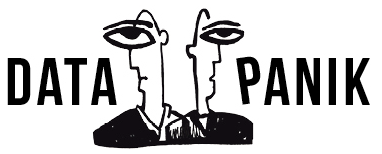 Don Tapscott, bestsellerauteur van Wikinomics en Grown Up Digital en hoogleraar management in Toronto, schreef voor Reuters een driedelige column over privacy in het digitale tijdperk. In het derde deel schetst hij een beeld van Big Brother 2.0. Als tegenwicht pleit hij er vooral voor dat iedereen een “persoonlijke privacy strategie” zou ontwikkelen. Het klinkt misschien wat magertjes, maar het is intrigerende lectuur en biedt zeker genoeg voer voor discussie.
Don Tapscott, bestsellerauteur van Wikinomics en Grown Up Digital en hoogleraar management in Toronto, schreef voor Reuters een driedelige column over privacy in het digitale tijdperk. In het derde deel schetst hij een beeld van Big Brother 2.0. Als tegenwicht pleit hij er vooral voor dat iedereen een “persoonlijke privacy strategie” zou ontwikkelen. Het klinkt misschien wat magertjes, maar het is intrigerende lectuur en biedt zeker genoeg voer voor discussie.
As the Net becomes the basis for commerce, work, entertainment, healthcare, learning and much human discourse, each of us is leaving a trail of digital crumbs as we spend a growing portion of our day touching networks. The books, music and stocks you buy online, your pharmacy purchases, groceries scanned at the supermarket or bought online, your child’s research for a school project, the card reader at the parking lot, your car’s conversations with a database via satellite, the online publications you read, the shirt you purchase in a department store with your store card, the prescription drugs you buy – and the hundreds of other network transactions in a typical day – point to the problem.
Computers can inexpensively link and cross-reference such databases to slice, dice and recompile information about individuals in hundreds of different ways. This makes these databases enormously attractive for government and corporations that are keen to know our whereabouts and activities.
George Orwell’s iconic text Nineteen Eighty-Four described the dystopian society where a totalitarian state rules in its own interests and everyone is under constant surveillance by authorities. […]
Sure, you could argue that it’s becoming difficult to restrict the information that governments can collect, and yes of course we need to be vigilant about how that information should be used. But we still need to resist attempts of governments to collect unnecessary information. We still need to fight for the basic privacy principle of “data minimization” – of limiting the information collected to clearly definable and socially helpful purposes. […]
To me, it’s not so likely that the future will resemble Orwell’s 1984, or Jeremy Bentham’s panopticon prison, or an East Bloc police state during the Cold War. Those are dystopic models from another era that depended upon a single, all-knowing malevolent power seeking control. The appropriate metaphor for the growing loss of privacy today is found in Frank Kafka‘s The Trial: The central character awaits trial and judgment by an inscrutable bureaucracy for a crime that he is not told about, using evidence that is never revealed to him, in a process that is equally random and inscrutable. In like manner, we, too, will be judged and sentenced in absentia by unknown public and private bureaucracies having access to our personal data. We will be the targets of social engineering, decisions, and discrimination, and we will never really know what or why.
Tapscott schreef de reeks columns voor Reuters:
- deel 1 – Should we ditch the idea of privacy?
- deel 2 – Can we retain privacy in the era of Big Data?
- deel 3 – How to resist Big Brother 2.0


[…] http://www.datapanik.org – Today, 9:30 AM […]